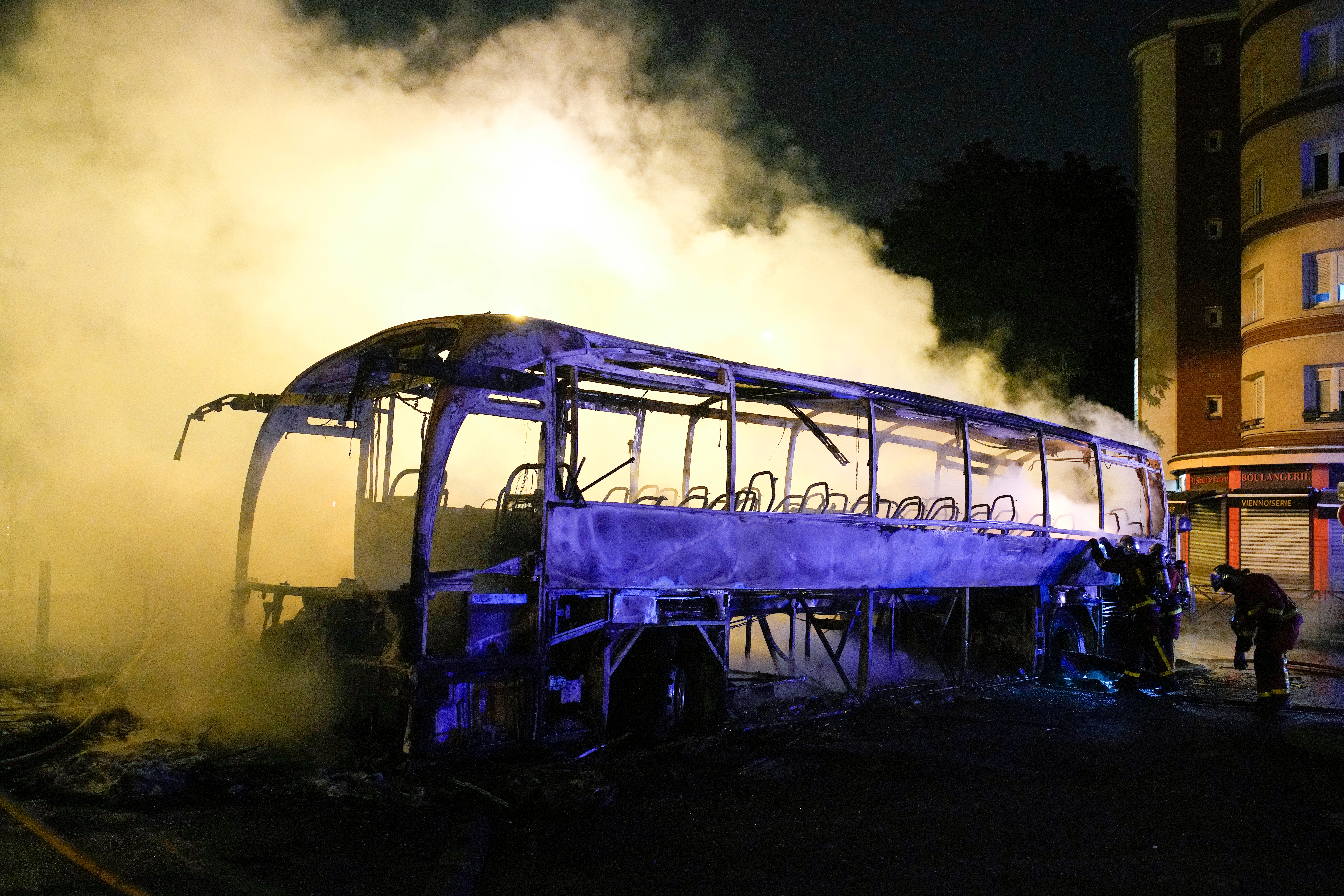The riots in France have diminished, but the burning issues remain
While the violence may have calmed down for now, writes Richard Ogier, the country must make fundamental changes to avoid repeating the mistakes of the past


My kids sing in the choir attached to the Strasbourg opera, whose 19th-century glass door windows were smashed by (other) hooded youths last weekend. I was returning from a regular Paris trip, making my way home on foot from Central Station because the trams were out due to the rioting.
European opera may be perceived – if less in France than the Anglo cultures – as elitist art. But the Opera National du Rhin, by its official name, hosts almost 230 performances a year, at around 90 per cent capacity.
And yet it was targeted, like an upmarket phone shop (by youths with phones) in the most recent wave of violence, apparently due to it being a symbol of la France d’en haut – highbrow France – that doesn’t listen to its youth.
I heard firecrackers as I approached the opera building, police cars suddenly travelling like missiles along the tramlines. They must have arrived just in time to avert a pile of broken cafe tables and giant umbrellas, taken from the outdoor opera cafe, being set alight.
The ransacking of the opera entrance made the top of the national TV news, perhaps because it showed how rioting youth, normally confined to the housing estate suburbs, had penetrated the symbolic heart of a French regional city.
“It’s the only way to be heard,” a hooded youth told France 2 TV. “They [the government] don’t listen to us. They don’t see what’s happening in les banlieues, only prejudice and cliches.”
But it was not only an opera house and not only in the east of the country. Le Monde reported in its Thursday edition that after the Paris region, the north and west were the worst-affected areas: schools, town halls, police stations – a total of 1,100 buildings damaged, according to the French Interior Ministry.
Yet the kids’ complaints are but one side of what might be called the French contortion of tears. Another is the local officials calling for the necessary investment at last in les banlieues. Public services are depleted. Hospitals, bakeries and bank branches are closing. There’s a lack of essential services. More public money is needed.
But “what money?” might be a reasonable question, given the billions already spent on suburban plans, building construction (and reconstruction). France already has not only a world record number of taxes (480), but the second-highest level of compulsory deductions, behind Denmark (45.4 per cent of GDP, compared with 33.5 per cent in the UK, 26.6 per cent in the US and 39.5 per cent in Germany). Public sector debt has just topped €3 trillion.
There were more tears from the political corner; literal tears for the mayor of an outer Paris suburb, whose family’s lives were endangered when a gang of hooligans drove a car into his house and then set it (the car) ablaze.
From the far left, Jean-Luc Melenchon decried the fatal police shooting of 17-year-old Nahel Merzouk, which ignited the rioting, as indicative of a culture of violence at the heart of French policing.
He may be right, but he’s gone brazenly close more than once to lumping all French coppers into the one big sack. If your French is OK (and even if not, you’ll get the gist), have a look at Melenchon taking a verbal truncheon to a police union representative on national television a while back.
From the far right, there is a sense that if there were only more discipline we’d all be all right. What these kids need – though often without jobs or prospects – is a bloody good whack around the ears. Senator Stephane Ravier urged that the police use “all their force to restore order. Everything.”
How deep does this run? By way of comparison, the riots in suburban Cronulla in Sydney in 2005 saw 40 cars “dismantled”, as one international newspaper memorably described it. As fate would have it, 2005 was the year of the last round of high-octane youth rioting in France.
But the violence this past week has been far worse: at least 5,700 cars incinerated, 3,650 arrests, some 722 police and gendarmes injured. That’s five times more than 18 years ago, when the riots lasted fully three weeks.
The depressing, deja vu element is that it’s hard, as with so much in France these days, to see from where the improvement will come.
Richard Ogier is an Australian journalist and consultant based in Strasbourg






Join our commenting forum
Join thought-provoking conversations, follow other Independent readers and see their replies
Comments